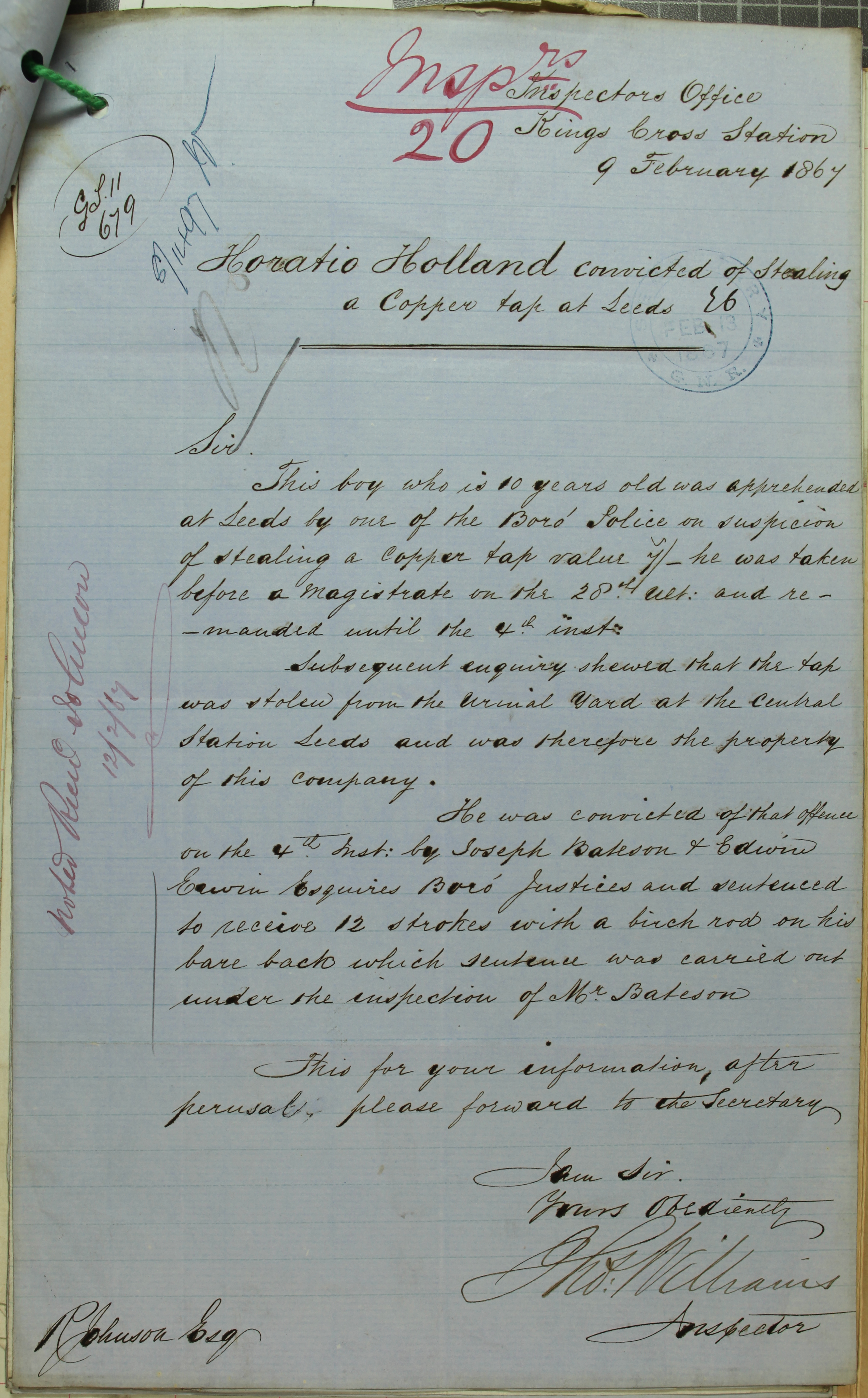
Transcript
[Oval stamp for Secretary G.N.R. for Great Northern Railway, 10 January 1867]
Inspectors Office
Kings Cross Station
9th February 1867
Horatio Holland convicted of stealing a copper tap at Leeds [Station]
Sir,
This boy who is 10 years old was apprehended [stopped] at Leeds by our Borough Police on suspicion of stealing a copper tap value 7 shillings. He was taken before a Magistrate [judge] on the 20th ultimo [of last month] and remanded until the 4th instant [kept in custody until the 4th of the present month].
Subsequent enquiry shewed that the tap was stolen from the urinal yard [men’s toilets] at the Central Station Leeds and was therefore the property of this Company [Great Northern Railway].
He was convicted of the offence on the 4th instant by Joseph Bateson & Edwin Esquires Borough Justices and sentenced to receive 12 strokes with a birch rod on his bare back which sentence was carried out under the inspection of Mr. Bateson.
This is for your information, after perusal [looking over] please forward [this letter] to the Secretary.
I am Sir,
Yours obediently,
Thomas Williams
Inspector
C. Johnson Esquire
Look at Source 3
Extract from a report about the theft of a copper tap at Leeds Station written for the Board of the Great Northern Railway. (Catalogue ref: RAIL 236/299/11)
- What type of document is it?
- Who has written it?
- What is the report is about?
- What was age of the boy concerned?
- Why do you think he carried out this theft?
- Does this source give any insight into police methods at the time?
- Why do you think this boy was punished like this?
- Do you think sources 1 & 3 suggest that crime increased because of the railways?
- Can you think of other reasons why people turned to crime in the 19th century?
What other sources could you use to find out?
